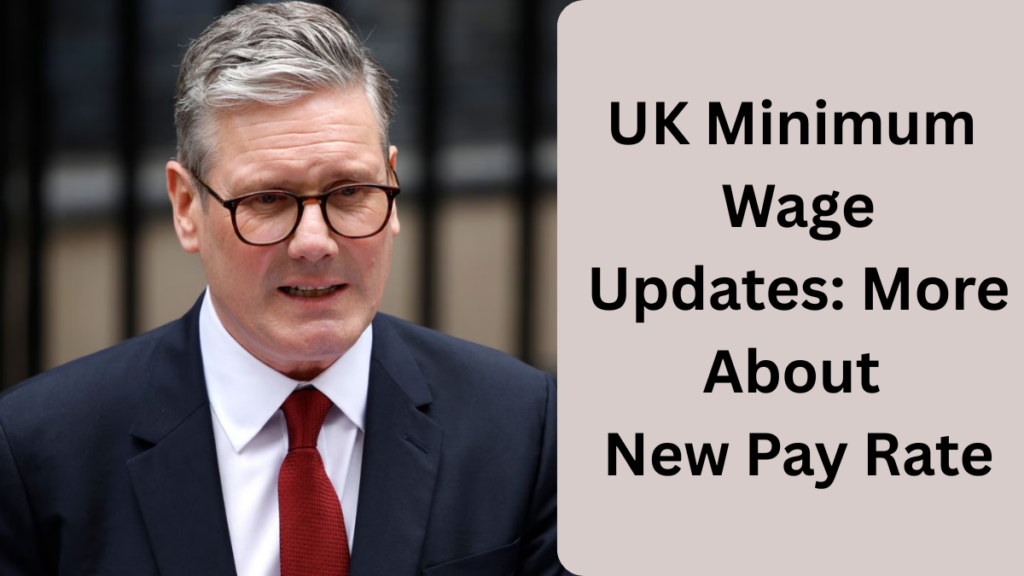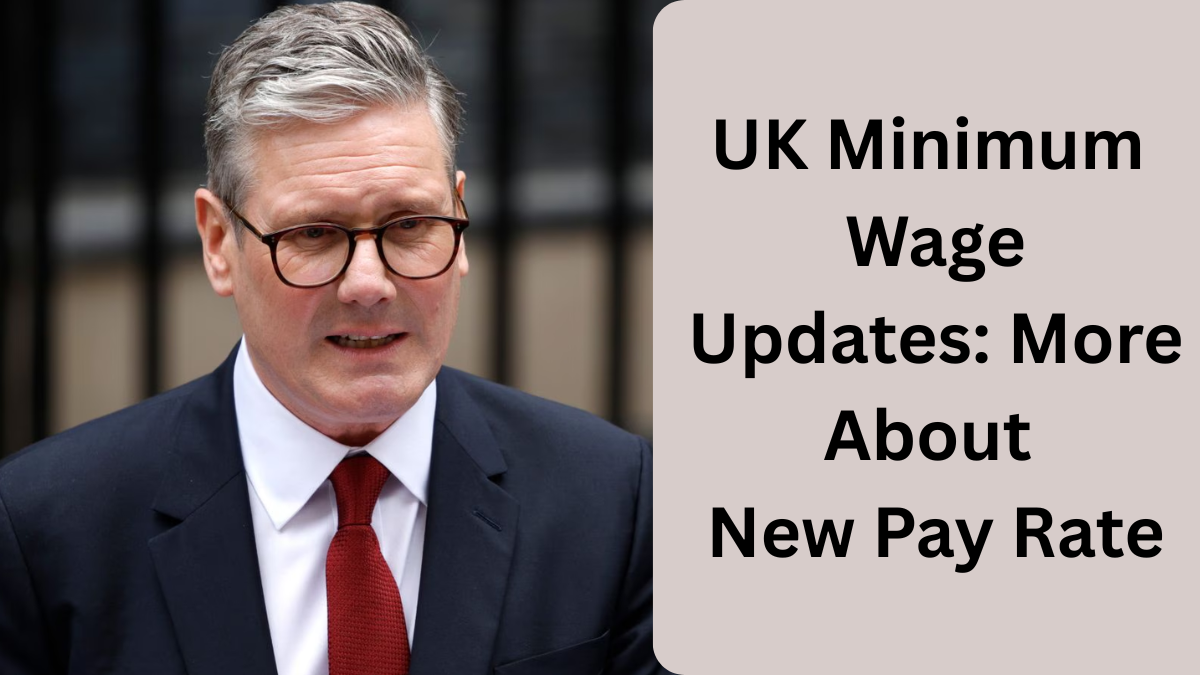The UK Government has officially announced an increase in the national minimum wage, set to take effect from 1 April 2025. This decision comes as a response to rising inflation and the growing cost of living, aiming to provide financial relief to workers across various age groups.
A key change this year is the extension of the National Living Wage (NLW) to include workers aged 21 and over, a shift from the previous threshold of 23+. This adjustment is a significant step towards reducing income inequality, particularly for younger workers transitioning into full-time employment.

New Minimum Wage Rates for 2025
The revised wage rates reflect substantial increases, particularly for younger employees and apprentices.
| Age/Category | 2024 Rate (£) | 2025 Rate (£) | Increase (£) | % Change |
|---|---|---|---|---|
| National Living Wage (21+) | 11.44 | 12.21 | 0.77 | 6.7% |
| 18–20-Year-Old Rate | 8.60 | 10.00 | 1.40 | 16.3% |
| 16–17-Year-Old Rate | 6.40 | 7.55 | 1.15 | 18.0% |
| Apprentice Rate | 6.40 | 7.55 | 1.15 | 18.0% |
| Accommodation Offset (Daily) | 10.66 | 11.33 | 0.67 | 6.3% |
The 2025 wage adjustments represent one of the most significant year-on-year increases for younger workers in over a decade. This move is expected to narrow the wage gap across age groups and promote financial stability for employees.
What This Means for Workers
For full-time employees aged 21+, the new £12.21 per hour rate means they could earn approximately £24,441 per year, compared to £22,918 under the 2024 rate. This increase translates to:
- Higher take-home pay to help cover rent, groceries, and energy bills.
- Improved financial independence for part-time and hourly workers.
- Progress towards a real living wage, though campaigners continue to advocate for further increases.
Impact on Employers and Businesses
While this wage increase is great news for workers, businesses—especially those in retail, hospitality, and care services—will need to adapt to higher payroll costs. Key challenges for employers include:
- Increased operational costs, particularly for small businesses.
- Potential price adjustments for goods and services to offset wage expenses.
- Updating HR and payroll systems ahead of the April deadline.
To ensure compliance, employers must:
Review and adjust employee contracts.
Update payroll systems to reflect the new rates.
Inform employees about their updated wages.
Failure to implement these changes can result in penalties of up to £20,000 per underpaid worker and potential legal repercussions.
Why Is the Government Increasing Wages?
The UK Government’s decision to raise the minimum wage aligns with its broader commitment to:
- Reducing income inequality and supporting low-income workers.
- Helping young workers meet their basic living expenses.
- Boosting the economy by increasing consumer spending power.
By significantly increasing wages for workers aged 16–20, the government aims to encourage more young people to enter the workforce and reduce dependency on welfare programs.
Practical Tips for Employees
To ensure you receive the correct pay increase, follow these steps:
- Check your payslip in April to confirm your new hourly rate.
- Contact Acas (0300 123 1100) if you suspect underpayment or speak to Citizens’ Advice.
- Plan your finances: Use the extra income wisely—prioritize essentials, savings, or paying off debts.
Who Is NOT Eligible for the New Wage Rates?
These increases do not apply to:
Self-employed workers
Volunteers and unpaid interns
Armed forces personnel
Family members working in a business owned by relatives
If you’re unsure whether the new rates apply to you, verify your employment status with your HR department or an employment rights organization.
FAQs
1. When will the new minimum wage rates take effect?
The new rates will be implemented from 1 April 2025. Employers must update payroll systems before this date to ensure compliance.
2. What should I do if my employer doesn’t pay me the new rate?
If you believe you are being underpaid, you can speak to your employer first. If the issue isn’t resolved, you can contact Acas (0300 123 1100) or file a complaint with HMRC.
3. Does this wage increase apply to part-time workers?
Yes, the increase applies to all eligible workers, including part-time and full-time employees, as long as they meet the age and employment criteria.
4. Will apprentices receive the same wage as regular workers?
No, apprentices have a separate minimum wage rate, which is increasing from £6.40 to £7.55 per hour in 2025. However, once they complete their apprenticeship and meet the age criteria, they will qualify for a higher minimum wage.
The 2025 minimum wage update is a significant step toward fair pay and better financial security for workers across the UK. While the changes challenge businesses, they ultimately aim to create a more balanced and sustainable economy. Keep an eye on your payslip in April to ensure you’re being paid what you deserve!
Click here to learn more
Sachin is an experienced writer with a strong background in education-related content. With years of expertise in creating informative and engaging material, he covers topics such as teaching strategies, educational technology, and learning methodologies. His work aims to inspire both educators and learners, reflecting his deep understanding of the evolving education landscape.

